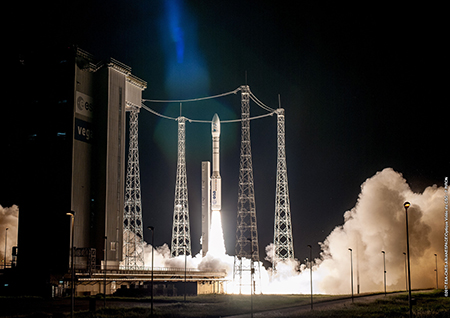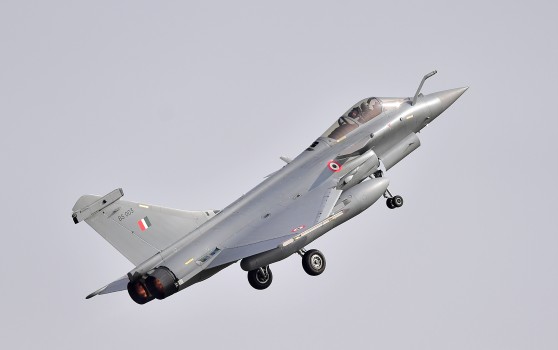
Lighting up the launch pad at liftoff, Vega begins its flight sequence lasting a little more than an hour and a half. Photo: Arianespace
GUIANA SPACE CENTRE (BNS): European aerospace company Arianespace has successfully carried out the launch mission for two Israeli-built Earth observation satellites on August 1.
The space agency's advanced Vega rocket carrying the 368-kg OPSAT-3000 Earth observation satellite for the Italian Defence Ministry and the 264-kg Venus vegetation and environmental-monitoring satellite for Israel lifted off from the European spaceport in French Guiana at 10:58 PM local time on August 1.
Both satellites were successfully delivered at Sun-synchronous orbits.
"Vega lofted its multi-passenger payload during a flight sequence lasting 1 hour, 37 minutes," Arianespace announced after the successful mission.
The OPSAT-3000 satellite is built by the Israel Aerospace Industries (IAI) based on inter-governmental Italian-Israeli agreements. Once operational, it will enable national defence entities to acquire and use high-resolution imagery from any part of the globe.
The Venµs satellite, also produced by IAI, is an Earth observation and exploratory mission for the Israel Space Agency (ISA) and France's CNES space agency for the benefit of Israel's Ministry of Science, Technology and Space.
Venµs (an acronym for "Vegetation and Environment monitoring on a New Micro Satellite") will study the evolution of Earth's vegetation during its scientific mission, while the satellite's technological mission will provide in-flight qualification of the Israeli electrical propulsion system.
The latest launch is the second space launch mission carried out by the new-generation Vega rocket this year and the 10th since it entered service in 2012 – "a perfect 10" by the lightweight space launch vehicle, Arianespace said.
 Previous Article
Previous Article Next Article
Next Article













The Indian Air Force, in its flight trials evaluation report submitted before the Defence Ministry l..
view articleAn insight into the Medium Multi-Role Combat Aircraft competition...
view articleSky enthusiasts can now spot the International Space Station (ISS) commanded by Indian-American astr..
view article